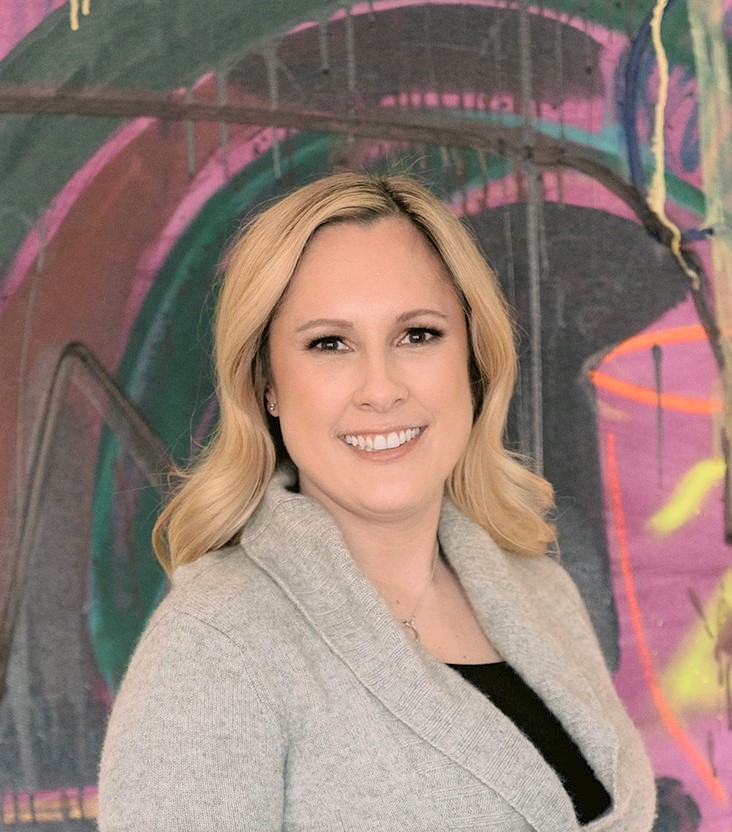Like many students who pursue doctoral education, pediatric critical care nurse Laura Buckley had a burning question that she wanted answered. What could be done to fix the rising rates of burnout among pediatric nurses?
Buckley, a second-generation nurse, was inspired to join the profession after watching her mother flourish as a nurse for over 35 years. Yet, what she found once on the job, was that this kind of long-lived nursing career was becoming increasingly rare.
“I really wanted to understand what was keeping nurses at the bedside and what was contributing to their burnout,” says Buckley, a graduate of the PhD Program at the Lawrence Bloomberg Faculty of Nursing. “I began to look at barriers to retention in the workplace, conducting a small local study on my unit at Sick Kids Hospital for a research competition. That’s what got me started on my research journey.”
Kim Widger, a professor at the Lawrence Bloomberg Faculty of Nursing was a judge for that research competition. She quickly saw that Buckley had the potential to excel in the PhD program at U of T.
“It was obvious to me that she had a tremendous capacity for research and critical inquiry,” says Widger. “Her goal to explore this understudied population of pediatric nurses, also had a lot of potential.”

Answering the question of how to fix burn out was a tall task for Buckley. She knew that she needed to focus on actionable areas that would provide the biggest impact, and that were feasible within the confines of a pediatric care unit and a resource strapped health care system.
Following a survey of almost 150 pediatric nurses across the three intensive care units at Sick Kids, Buckley’s study found that for most nurses, work life and work engagement had the biggest impact on reducing burnout.
“I needed to drill down further though,” says Buckley. “I followed up with semi-structured interviews to find out what aspects of work life mattered to them, and what specifically kept these nurses engaged in their work.”
What emerged from these interviews were that for many nurses, opportunities to advance in their role helped them continue to find meaning in their work. So too, did having a positive relationship with their work colleagues, an idea Buckley describes as context-based emotional support.
“It’s when you can rely on the support of a work colleague who understands exactly what you are going through, why you may be stressed or feeling emotionally drained. It is not a type of support that can easily be provided by a partner or friend who doesn’t work in the same field, but if you look across the room at your colleague, they can give you that sense that they get it,” says Buckley.
Many of the nurses Buckley interviewed were also quick to explain all the ways in which they were trying to manage their own burnout, through various forms of self-care, from exercising to taking breaks. But Buckley points out that this type of burnout intervention places the responsibility directly on the individual instead of the system and isn’t a sustainable approach.
“You can be doing all the self-care in the world, but if you’re work environment is toxic or you are not getting an opportunity for professional development, your well-being cannot move in the right direction,” says Buckley.
The impacts of nurse burnout have been widely researched, including its effects on patient safety, communication with patient’s families, length of stay in hospital and patient outcomes, as well as nursing retention.
As part her doctoral study, Buckley asked nurses she surveyed about recommendations they would make to hospital leadership to reduce burnout. Each suggestion she received, she says, was practical. Examples such as not having to admit a critically ill child right after a patient died, not having back-to-back assignments for end-of-life care, and not having to float, a staffing strategy that places nurses in areas outside their clinical area of training, were actionable changes that could directly improve work life.
“Floating was a significant concern for many nurses, it exemplifies that long-held belief that a nurse, is a nurse, is a nurse. In reality, a nurse is a highly trained and specialized profession,” says Buckley. “Placing a pediatric critical care nurse on an oncology unit is not the best use of resources and treats nurses as a commodity rather than a profession.”
As the threat of burnout continues across the nursing landscape, Buckley is passionate about the role of nurse researcher to be an advocate in addressing this crisis. It is why she remained focused on this question of addressing burnout even before the COVID-19 pandemic.
“Nursing, as an inherently female field is a population that is often overlooked, but we are coming into our own with strong leadership, and we need to advocate for nurses to have support in their work environments,” says Buckley.
The current healthcare landscape is primed to act upon Buckley’s doctoral research with newly formed retention and recruitment committees in many hospital settings. She has taken her research to leadership within her own hospital as well as her unit manager who have been receptive at seeing how they can implement recommendations from her work into their workflow.
“Retention is crucial,” says Buckley. “You can’t just pluck a critical care nurse out of school, you need someone with tacit knowledge. These changes will be key to successfully implementing retention strategies.”
While it has only been a few months since Buckley’s work was published, she has already been conducting education days with nurses at her hospital, as part of the integral knowledge dissemination of her work. Some of the key changes have been ensuring staff are able to take breaks, and funneling nurses to make sure extra overtime is reduced.
“It has been inspiring to see something tangible come out of my doctoral work, and to be able to sit at these leadership tables and share this research,” says Buckley.
Buckley credits the PhD program at Bloomberg Nursing and specifically being mentored by its research faculty for helping her gain the skills needed to lead her own research with a goal of improving health care delivery.
